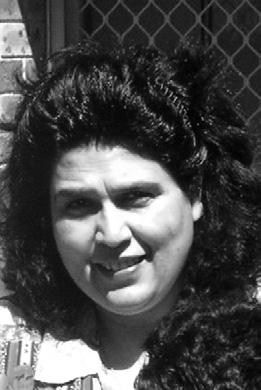
4 minute read
Existential to expendable
from 2010-03 Sydney (1)
by Indian Link
BY RANI JHALA
They call it ‘economical efficiency’ but I call it ‘unethical murder’.
A decade ago I started working as a nurse. I dedicated ten years to a profession that I believed was akin to sainthood. A profession that healed, cured, cared and nurtured. But all that has now changed. No, I won’t give up nursing. But now, I will decide on what terms I work.
But it is not ‘them’ that saw the family cry, it was not ‘them’ that saw our efforts wasted, it is not them that did the ‘caring’ and, it is not ‘them’ that felt the attachment
A nurse’s life is not easy. We work long hours, we put up with verbal abuse and physical assaults, we clean up excretions from morning to night, and rush around doing as the doctors ask, often without a word of thanks. And the elderly particularly, are the hardest to look after. They are not like little babies you go clucky over as you clean bottoms; nor are they like children who delight in your joke or game. Sometimes they are not even emotionally and mentally capable of appreciating your efforts. But amidst all this chaos still stands the reason I joined this profession. The need to care! The determination to make a difference!
But those ideals were shattered for me with the death of the man in Bed 6. Because yesterday, steps were taken to terminate a life - just so that a bed could be made available. The removal of an “expendable item” as one called it. “An essential cost saving measure in past his ‘use by’ date. But it is not ‘them’ that saw the family cry, it was not ‘them’ that saw our efforts wasted, it is not ‘them’ that did the caring and, it is not ‘them’ that felt the attachment. Sitting in their powerhouses they remained disconnected, making decisions with their heads so totally unrelated to their hearts.
I looked at several patients’ records and they all had things in common. This is how they do it. They stop appropriate treatments. When the family starts asking questions, they are kept away from their loved one. When the patient was distressed, out came the morphine. They falsified the medical records, they made so-called errors in medication, they terrorised the patient into a traumatized state, they ignored medical results, and they did not consult the specialist, though records said otherwise. In most cases the specialist was not even on site on the dates mentioned. They kept them gagged, tied or blindfolded. And when the patient was finally lost, they wondered how it happened.
If the family complained, the Board offered words of empathy. If the family took the issue to the Commission, an investigation was conducted and finally the family was told that the instances of negligence did not contribute to the death of the patient. And the hospital concluded the investigation by saying that they would like to use the patient’s case to educate the staff on ‘how not to treat patients’! Call me dumb for saying this, but we are taught how to treat a patient when we start nursing. And any person, who needs reminders on such basic caring, is fooling the world into thinking that they belong in the ‘medical profession’.

Where families had the will to take it to Court, they saw a settlement; if they lost the will to fight, they took home the painful memories and their terrible loss.
For me that pain ends right now. I am walking away from the profession that won’t let me heal. I am leaving unfulfilled ambitions, but I am going to be free from
Hundreds are going to do the same. We hope to raise enough awareness to show people that just because they are aged, they are not old. Just because they cannot see, they are not blind and if they are slow in speech, they are not dumb. And it is only our arrogance that makes us believe that we have to think for them, decide for them and dictate to them. It is our error to think that because we are younger, we have the right to live and because they are older, it is their ‘duty’ to die.
The odds of a full recovery are already stacked against an elderly patient simply because of their age and their susceptibility to complications. I am not asking the impossible of saving every life. What I am saying is that we shouldn’t add to the disadvantages. If we cannot save them, we can at least make sure their end is comfortable and peaceful. We can see to it that they feel cared for while they are alive and when the moment comes, we can bid them goodbye and help the family to release them to a better world. It is an ideal, but it not impossible.
And what made me do it? A simple request from an elderly patient in which he thanked me for my caring, but asked me to tell his family to “report the hospital for they had behaved badly”. I then checked his file and saw the many discrepancies and errors, and on the day he died I saw the note written in the morning: No CPR for this patient. That evening he died of a heart attack. No attempt had been made to revive him. No they did not kill him. They simply did not let him live.
And I realised then, that the soul had survived despite our human intervention. It took with it the memories of the pain and suffering it had endured at the hands of the staff, when instead it should have left this earth grateful for our caring and surrounded by loved ones.
No, I will not be party to this heinous game anymore. I will not accept what they call ‘economical efficiency’ and what I now call, ‘unethical murder’.










